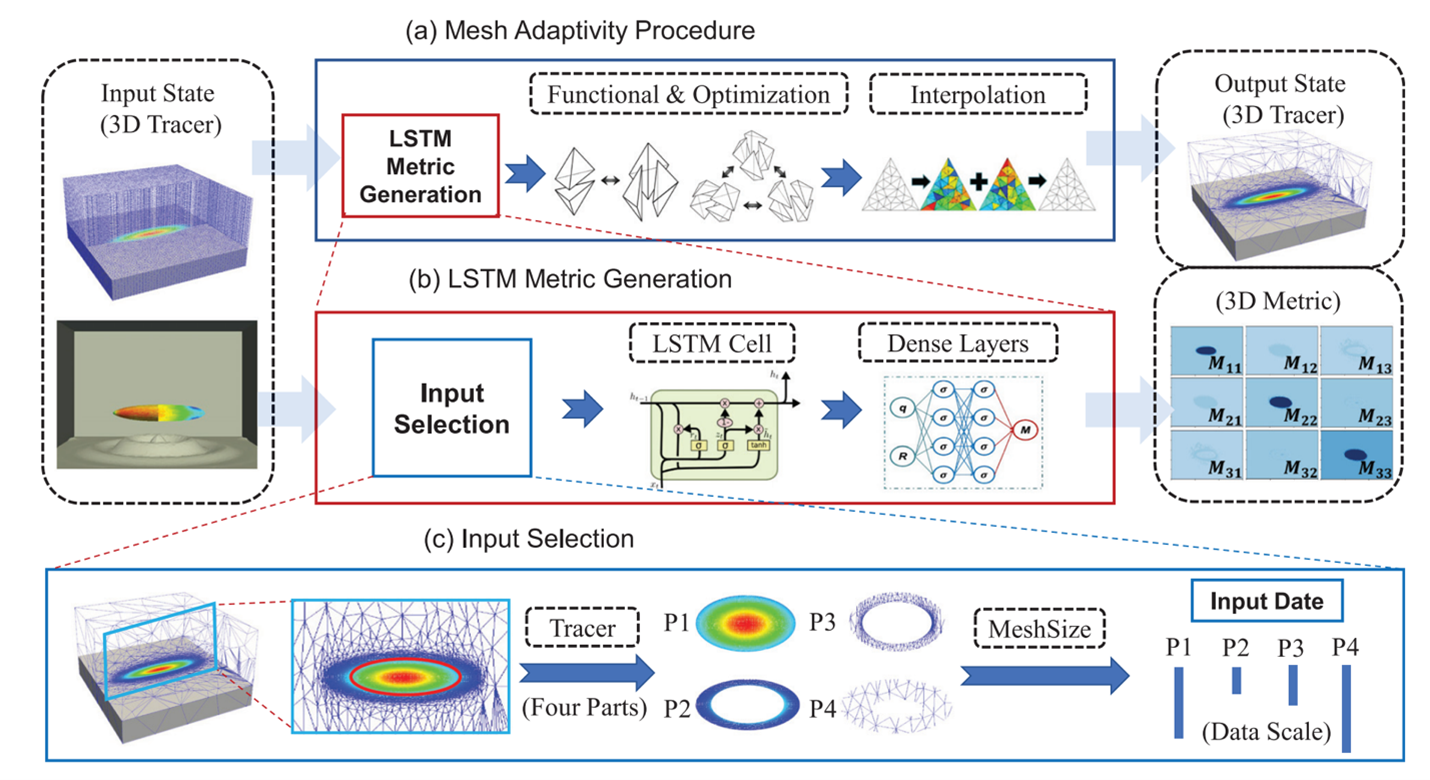CW3E Publication Notice
A long short-term memory neural network-based error estimator for three-dimensional dynamically adaptive mesh generation
November 20, 2023
A new paper titled “A long short-term memory neural network-based error estimator for three-dimensional dynamically adaptive mesh generation” by Xiaofei Wu (CUIT, China), Pu Gan (CUIT, China), Jinxi Li (IAP, CAS), Fangxin Fang (ICL, UK), Jerry Zou (CW3E), Christopher Pain (ICL, UK), Xiao Tang (IAP, CAS), Jinyuan Xin (IAP, CAS), Zifa Wang (IAP, CAS), and Jiang Zhu (IAP, CAS) was recently published in the Physics of Fluids. This study introduces a LSTM neural network for guiding mesh adaptation in atmospheric modeling. The LSTM neural network model is integrated into the existing unstructured mesh atmosphere model to generate adaptive meshes in both time and space for 2D/3D scenarios. This constitutes an initial phase toward establishing a comprehensive neural network for 3D unstructured adaptive mesh generation. This work supports the Modeling Capabilities for the Western United States priority area in CW3E’s 2019–2024 Strategic Plan.
In this study, we harness the innovative power of a long short-term memory (LSTM) neural network as an error estimator for adapting unstructured meshes in both 2D and 3D scenarios. This LSTM network predicts the evolution of the adaptive grid based on specified variables, presenting itself as an artificial intelligence-driven architecture to optimize the adaptive criterion for the target variable. Our findings reveal that the mesh patterns generated by the LSTM error estimator within 3D adaptive atmospheric model Fluidity-Atmosphere closely resemble those produced by traditional error estimators, highlighting superior performance in enhancing simulation accuracy. Notably, with an increase in the number of nodes, the LSTM mesh generator significantly reduces CPU time requirements by up to 50% in 3D cases compared to the conventional mesh generator within Fluidity-Atmos, showcasing its remarkable computational efficiency.
Adaptive meshes play a pivotal role in numerical weather modeling, providing an efficient, precise, and flexible representation of intricate physical phenomena. The potential application of adaptive meshes holds promise for improving predictions of high-impact weather systems that require high-resolution simulations at a reasonable cost.
Figure 1: The proposed LSTM neural network for mesh adaptivity (a), the LSTM memory cell in this architecture (b), and the schematic of input data selection criteria (c).
Wu, X., Gan, P., Li, J., Fang, F., Zou, X., Pain, C. C., Tang, X., Xin, J., Wang, Z., & Zhu, J. (2023). A long short-term memory neural network-based error estimator for three-dimensional dynamically adaptive mesh generation. Physics of Fluids, 35(10), 106610. https://doi.org/10.1063/5.0172020

